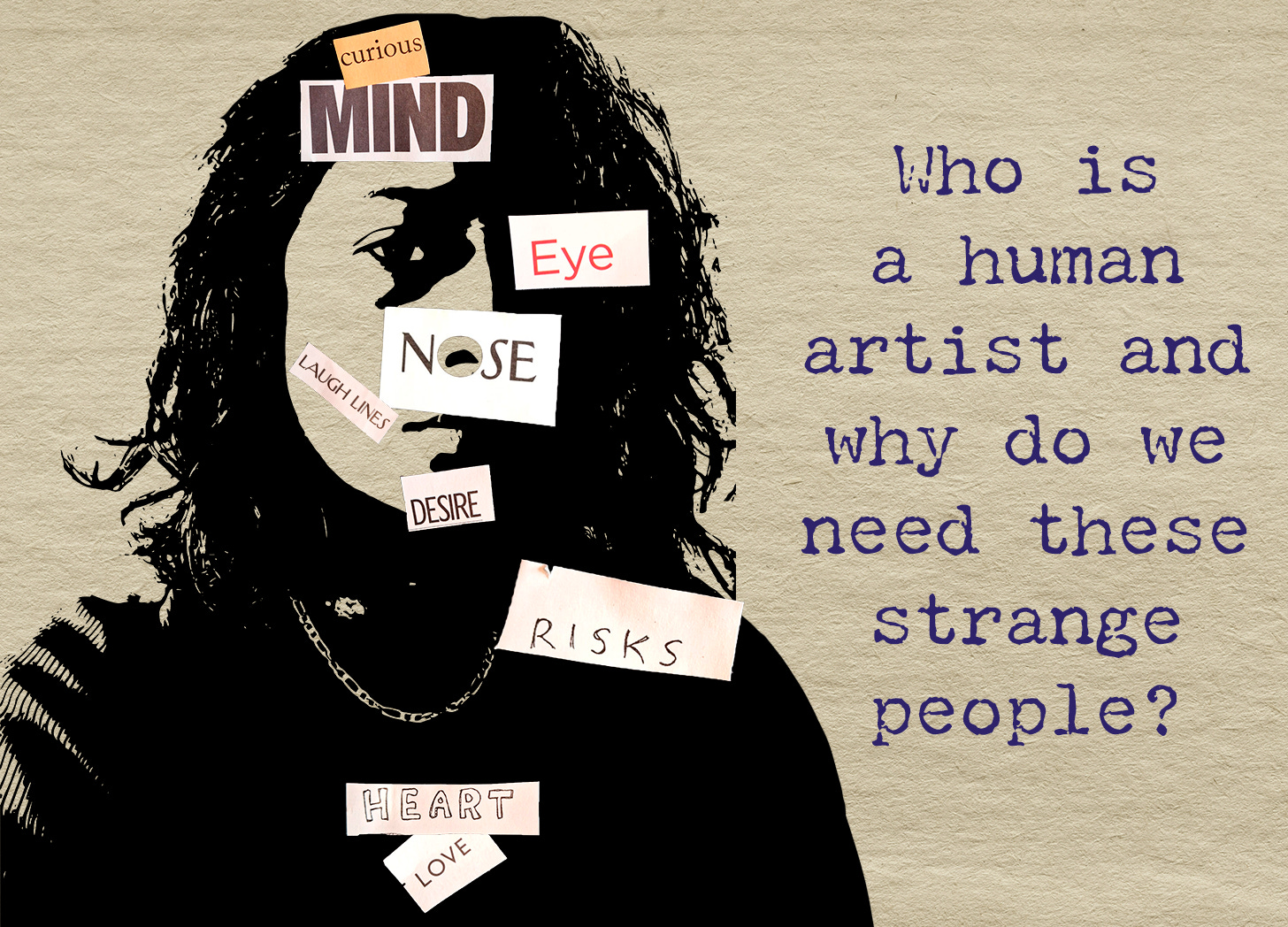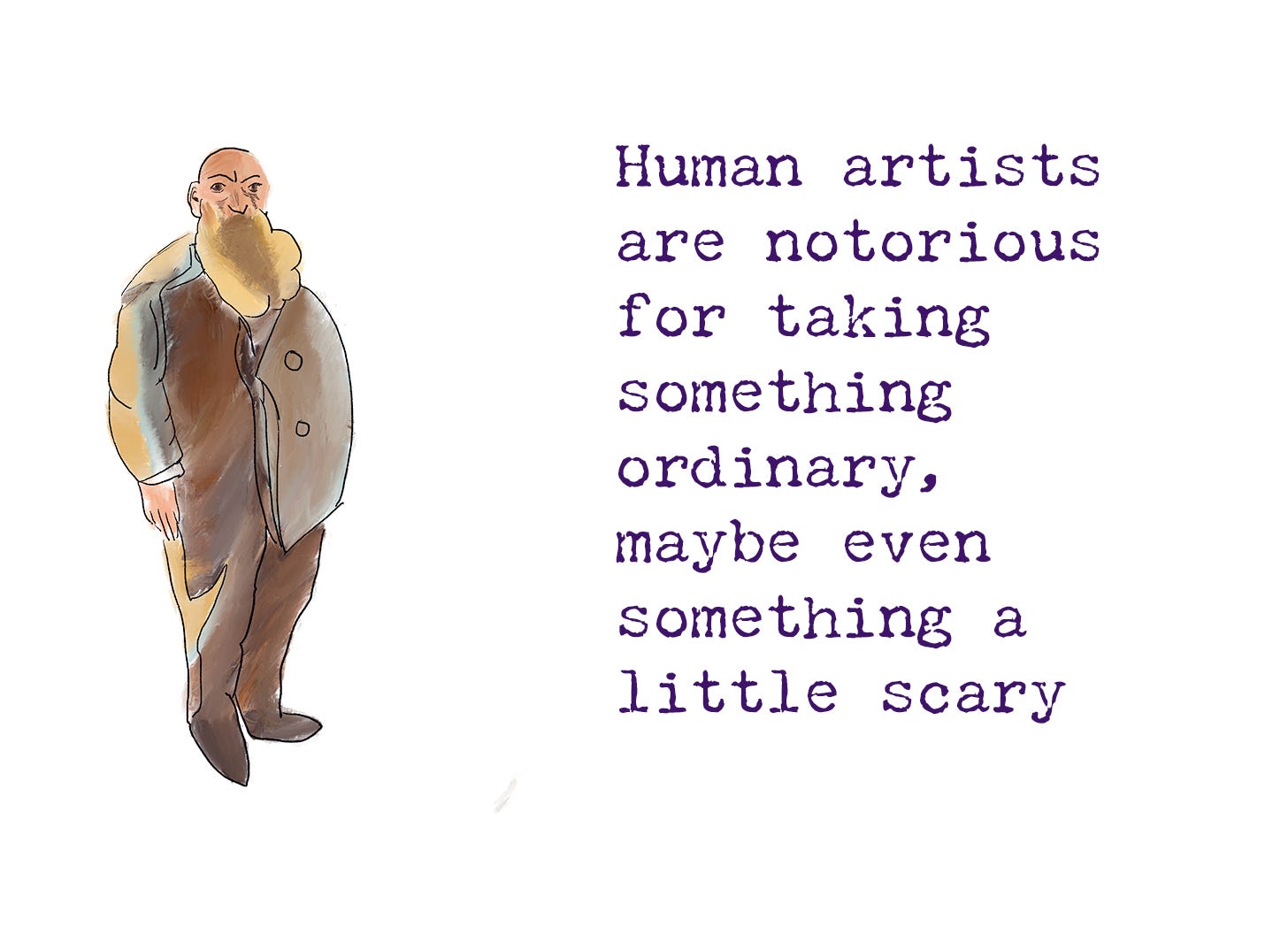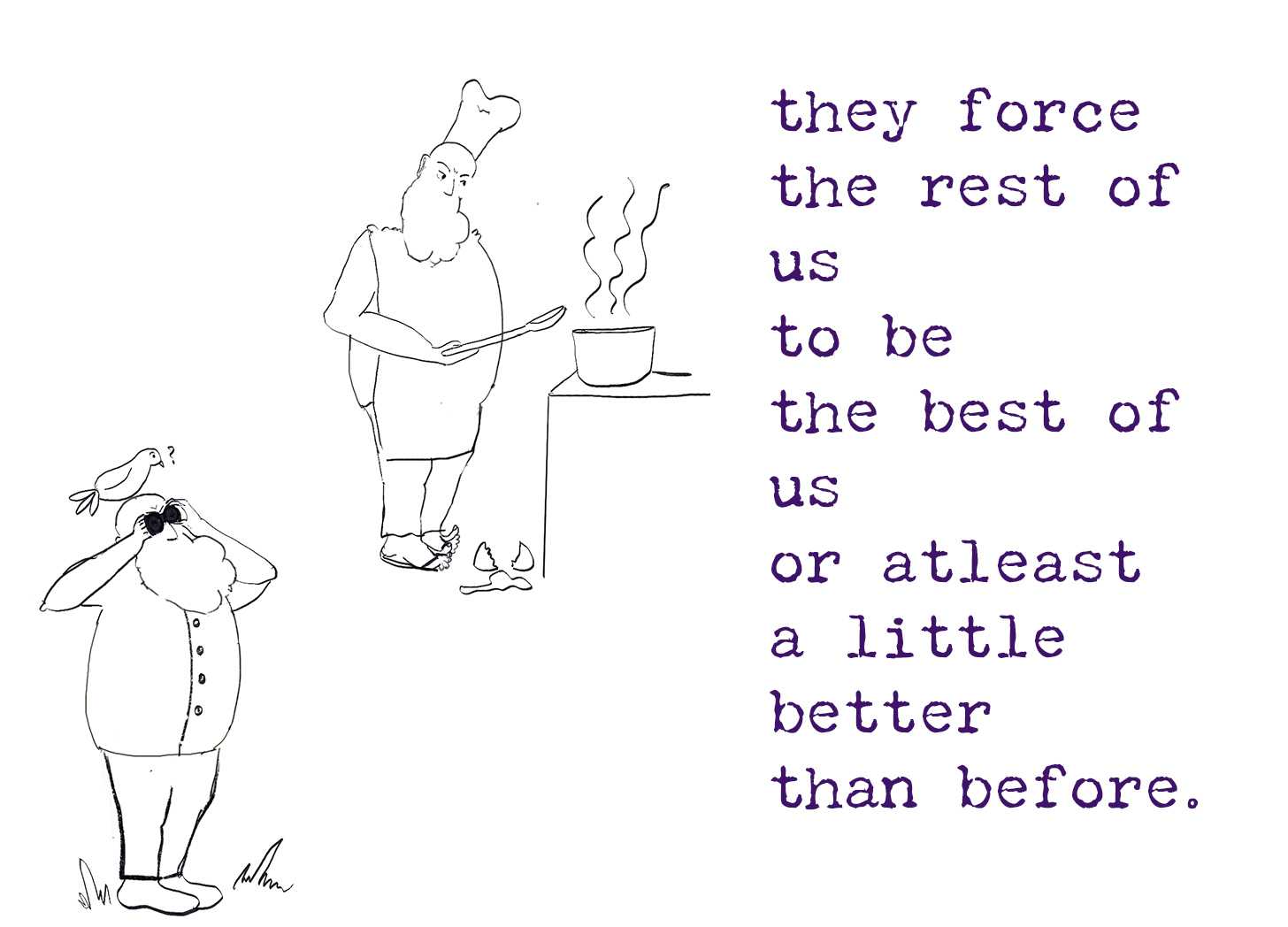
Despite my best efforts, I find that I cannot stop thinking about A.I. Does this mean that I am beset with panic that A.I. will take my job and that it will end 70% of humanity (which is the latest fear oozing out of OpenAI)?
Partially, yes it does.
But mostly I find myself thinking of A.I. the way one thinks of a former flame after a terrible break up — with schadenfreude. I am delighted when it fails.
I laugh at its pitiful attempts to draw hands (something I still can’t do, but hey at least I have hands I say with vicious petulance). I read about A.I. wins and fails with obsessive interest, track who its latest friends are, look up its weird uncanny, emotionless images, sigh and say I-told-you-so when it hallucinates and lies.
This is strange because A.I. and I were never particularly close. It is just the latest in a long list of Shiny New Things that have threatened and failed to end human creativity (or so I tell myself). But when I read about A.I. wins and fails, track who its latest friends are, look up its weird uncanny art, I realise I am turning A.I. into my shadow nemesis — a perfect other, receptacle of my anxieties, projector screen of my dread.
So I do what human artists do: think about it deeply and then not at all. Dive into my subconscious. Collect (without seeming to collect) an unconnected bunch of thoughts, memories, words, images, feelings and textures. Cut some paper. Draw some lines. Listen to music. Make music. Move. Type out words. Make Meaning. Find Catharsis.
It’s not the frictionless instant gratification you’ll get from an A.I. prompt
but I promise it feels so much better.
The past week I wrote about a bunch of A.I. fails for Coda Story’s disinformation round-up which you can read here.
Next week I will be at Zeg Fest in Tbilisi speaking with journalists, publishers and storytellers about more A.I. stuff, the very human and brave act of making and writing books, and of course, making comics about all of it.
I had many thoughts about the A.I.-made All Eyes on Rafah image but as the weeks passed, only two remained important:
1. It is exhausting that shaming other people appears to be the only end goal of certain kinds of online discourse, particularly when hundreds of thousands of people are being killed and anyone who is not absolutely horrible is against this and wants it to stop.
Like all things that go viral, become part of Online Discourse, and then turn into meaningless white noise, “All Eyes on Rafah” has been co-opted into a million different “All Eyes on XYZ” images, which mean that our gaze is as ever, distracted and confused. The “Add Yours” template on Instagram has also found renewed popularity, and all of it reminds me of #MeToo, an innocuous pair of words that were bunched together, seemed to change the world, and then meant nothing at all.
Instead, I read Teju Cole on What Does it Mean to Look At This and Susan Sontag Regarding the Pain of Others (the first is a paywalled link but the second is a free PDF).
Stay real friends.








